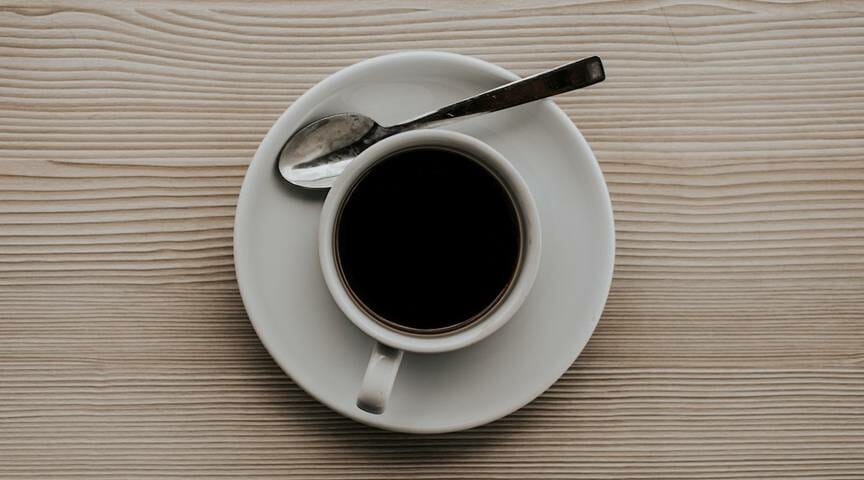Have you ever experienced anxiety after drinking a cup of coffee? Though coffee improves your mood in general, it can also increase your nervousness. Coffee drinkers have been conscious of this fact. So, many are switching to decaf.
Now the question is: can decaf coffee cause anxiety? Decaf coffee is usually safe for people with anxiety. But, it can cause other side effects if you overdrink.
In this post, we’ll explore whether decaf coffee can cause anxiety and other relevant information.
What Is the Relationship between Coffee and Anxiety?
Coffee is a popular beverage that contains high levels of caffeine. It is a psychoactive substance that has stimulating effects on the human brain.
Caffeine can lead to increased alertness and energy levels. However, it also causes anxiety and nervousness for some people.
Caffeine affects neurotransmitters in the brain, including serotonin, a chemical. It helps to regulate mood and emotional state. When levels of serotonin are low, you may feel depressed or anxious.
Caffeine blocks the absorption of serotonin, and it can increase your anxiety levels. However, note that everyone’s response to caffeine is not the same. Some people may be more sensitive to its effects than others.
Therefore, you may experiment with different coffee drinks and brewing methods to find the most suitable one for your needs.
Can Coffee Cause Anxiety?
Yes, it can because coffee is a powerful stimulant. When consumed in moderation, coffee can help to increase alertness and focus. But, overconsumption of coffee can lead to restlessness, irritability, and anxiety.
Reports from studies also say that coffee can worsen feelings of anxiety and stress. That’s why experts suggest limiting coffee intake or avoiding it for people with anxiety.
Can Decaf Coffee Cause Anxiety?
In a rare case, you may feel anxious after drinking decaf coffee. Many people drink decaf coffee because they want to avoid the side effects of caffeine, such as jitteriness, anxiety, and sleeplessness.
However, decaf coffee still contains small amounts of caffeine, and it is possible to experience some side effects from drinking decaf coffee. To stay safe from the effect of caffeine, you should pick a highly decaffeinated decaf coffee.
People who are sensitive to caffeine may still experience jitteriness, anxiety, or shaking after drinking decaf coffee. If you are concerned about the effect and your anxiety levels, consult with a doctor or a health professional.
Read: What Happens if You Drink Expired Coffee Creamer?
How Is Decaf Coffee Made?
Decaf coffee is coffee with most of its caffeine content removed. Manufacturers follow several methods of decaffeination. But, all of them involve using water to extract the caffeine from the green coffee beans.

The most common decaffeination method is called the Swiss water method. In this process, the green coffee beans are soaked in hot water to extract the caffeine. After that, the water is filtered to remove the caffeine and other impurities. The beans are also flushed to remove any remaining caffeine. Finally, manufacturers dry and roast the beans to produce decaf coffee.
Though chemical decaffeination methods exist, they can sometimes leave traces of those chemicals in the final product. That’s why the Swiss water method is generally considered the safest and most effective way to decaffeinate coffee.
How Much Caffeine Decaf Coffee Contains?
Decaffeination removes 97% or more of the caffeine from coffee beans. As a result, decaf coffee typically contains only 2 mg of caffeine per cup, whereas a regular cup of coffee contains about 95 mg.
Though the amount of caffeine in decaf coffee is low, it is still enough to produce a noticeable effect in some people. If you are too sensitive to caffeine, you should also avoid decaf coffee.
Decaf coffee is a great way to enjoy the taste of coffee for others without the side effects of caffeine.
Benefits of Decaf Coffee
Decaf coffee has been getting much attention as a healthy alternative to regular coffee. Let’s check out some benefits of drinking decaf coffee.
Though decaf coffee contains less caffeine than regular coffee, it also has health benefits.
- Decaf coffee has been shown to help improve memory and cognitive function.
- It also helps boost energy levels and reduce anxiety and stress.
- The drink can help detoxify the body and protect against diabetes and other chronic diseases.
If you are looking for a healthy version of coffee, consider switching to decaf coffee.
Read: Can I Drink Coffee after Taking Medicine?
Side Effects of Decaf Coffee
Decaf coffee might sound like a healthier option. But, there are some potential side effects of this drink
For example, decaf coffee can cause arthritis in some people because the caffeine helps to block the absorption of a substance called adenosine, a natural pain reliever. When adenosine levels are increased, it can lead to arthritis pain.
In addition, decaf coffee can also cause heart complications in some people because caffeine causes an increase in heart rate and blood pressure.
Headaches and drowsiness are also common side effects of decaf coffee. So, it is important to know the potential risks before switching to decaf coffee
Is Decaf Coffee a Good Choice for Anxiety?

Decaf coffee is becoming popular as people have become more aware of the potential downsides of caffeine.
Caffeine is a stimulant that directly correlates with many physical and mental problems, including anxiety, hyperactivity, insomnia, and restlessness. It can also raise blood pressure and heart rate. Many people are more sensitive to its effects than others.
For all these reasons, decaf coffee can be a good choice for people who are struggling with anxiety.
However, decaf coffee even contains small amounts of caffeine. Therefore, limiting its consumption to no more than three cups per day is best.
Read: Coffee Cause Constipation or Diarrhea?
Should You Switch to Decaf Coffee?
Unless you are sensitive to caffeine or are trying to avoid it for other reasons, there is no need to switch to decaf coffee. Just make sure not to overdrink caffeine since it can lead to negative side effects.
Overdose of caffeine can cause physical and mental problems such as anxiety, restlessness, and insomnia. For this reason, many people choose to switch to decaf coffee.
Decaf contains a small amount of caffeine and is generally safe for most people to drink. Additionally, decaf coffee has some health benefits, such as a reduced risk of heart disease and type 2 diabetes.
Final Words
The final answer is YES if you ask – can decaf coffee cause anxiety? But, its effect will not be serious as regular coffee. Caffeine and anxiety have an in-depth relationship, as found in research. That’s why many coffee lovers suffer from anxiety.
Coffee manufacturers introduce us to decaf as a quick solution. However, decaf still has a low amount of caffeine. It is fairly okay if you drink decaf in moderation. Other, you may experience other types of physical complications.